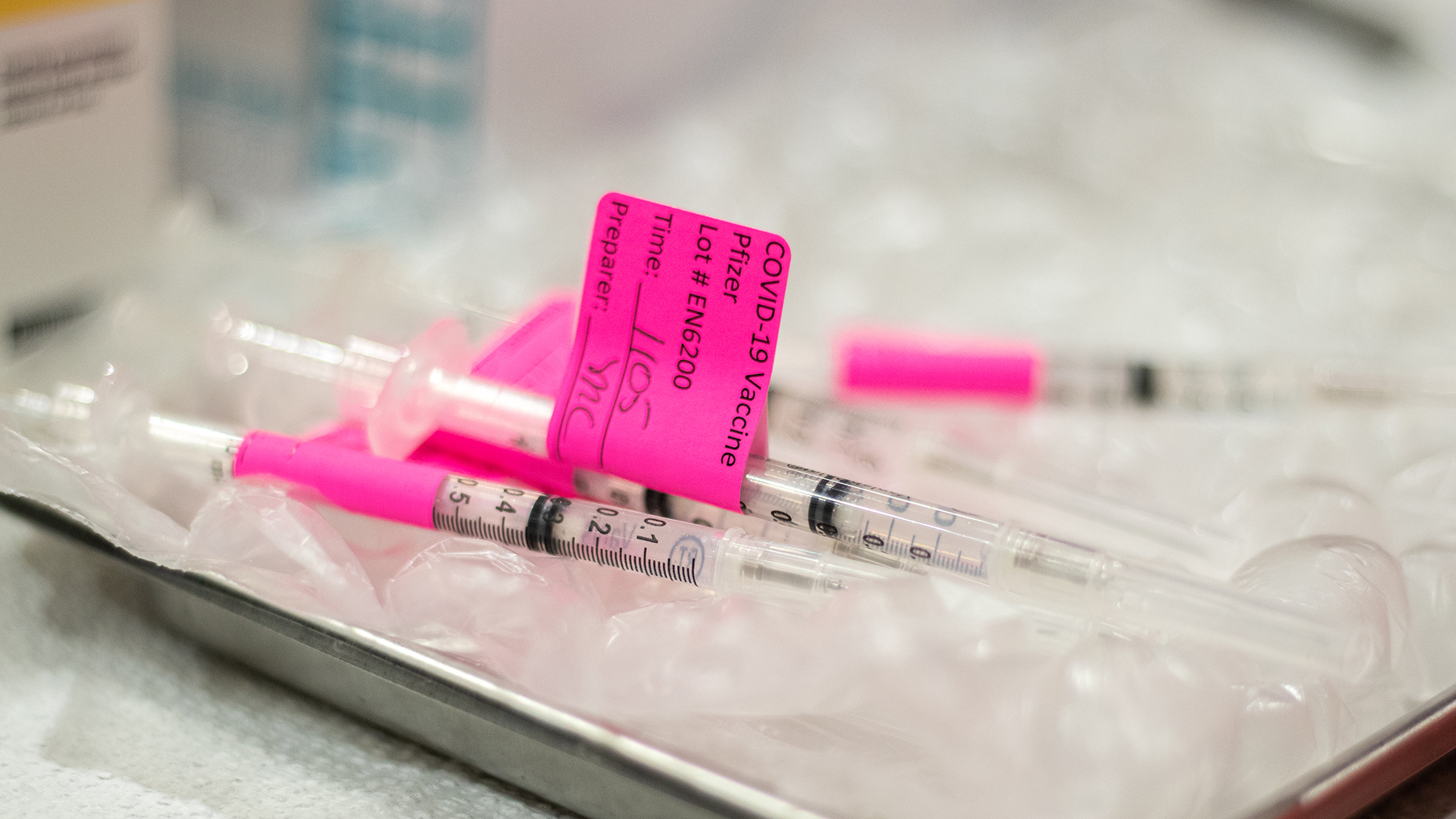The White House will partner with the University of Maryland’s Center for Health Equity among other organizations to recruit 1,000 Black-owned barbershops and salons nationwide to promote vaccinations among people of color, President Joe Biden announced Wednesday.
The initiative, “Shots at the Shop,” is part of the Biden administration’s push to increase vaccination rates among Black, Latino and other communities of color through community-based programs, according to a press release. The initiative will train Black hairstylists and barbers to squash misinformation about COVID-19, the release added.
The Black Coalition Against COVID and SheaMoisture, a beauty and personal care brand, are also collaborating on the project.
Dr. Marcella Nunez-Smith, who leads the White House’s COVID-19 Health Equity Task Force, spoke at a town hall Wednesday evening on the importance of debunking myths and misinformation about COVID-19 vaccines. The town hall was hosted by the Black Coalition Against COVID and organized by the Center for Health Equity.
[Hyattsville barbershop holds COVID-19 vaccine clinic with UMD, Luminis Health partnership]
“This is our big challenge right now — there’s so much out there that is wrong on social media,” Nunez-Smith said. “We’re all gonna be in solidarity together, and let’s be in solidarity to make sure that we’re not letting the shop be a place where misinformation spreads.”
The White House also noted participating shops will also display educational materials about vaccines, and some will host on-site vaccination events in partnership with local providers.
Shots at the Shop builds off of the Health Advocates In-Reach and Research campaign, which aims to assist local barbershops and beauty salons in Prince George’s County as reliable places where people can receive health education and medical services. The HAIR campaign was developed by Dr. Stephen Thomas, the director of the university’s Center for Health Equity.
Last month, the Center for Health Equity alongside Luminis Health vaccinated about 35 people at a vaccine clinic held at The Shop Spa, a barbershop in Hyattsville. In the same press release, Thomas noted that Black barbers and stylists are an “important asset to the health of the community” because of the trust associated within the community.
“It is my hope that Shots at the Shop is the beginning of truly recognizing the role that barbers and stylists can play in promoting health and preventing disease,” said Thomas, a professor of health policy and management at this university. “We need to stay there to address the underlying health conditions, like hypertension, cancer, and diabetes that have made people of color vulnerable to this pandemic.”
[UMD professors and staff discuss medical racism, COVID-19 vaccine hesitancy at panel]
Participating barbershops and salons will take a four-hour training course delivered by this university to become community health workers. Once trained, some shops will become vaccination sites, according to the release. The course will also feature national public health and medical experts in addition to barbers and stylists who are already certified community health workers, the release added.
“Hair salons and barbershops are important micro-community centers,” Dr. Reed Tuckson, founding member of the Black Coalition Against COVID, said in the release. “We are at a critical stage in the fight against this pandemic and we need all hands on deck if we are going to protect Black and Brown health and survival.”
SheaMoisture will provide $1,000 grants to each participating salon or barbershop as an effort to help shops to re-open, the release added. The company also provided relief and recovery grants last year to ensure Black-owned businesses could overcome financial struggles during the height of the pandemic.
“Upon hearing that Black Americans comprise only 8.5% of those vaccinated in the U.S., we saw that as an urgent need to act,” Cara Sabin, CEO of SheaMoisture, said in the release. “By providing 1,000 businesses with $1,000 grants, for a total of $1 million, we hope this will bring the necessary educational and material resources to Black communities across the U.S. in a safe, efficient, and convenient manner.”



